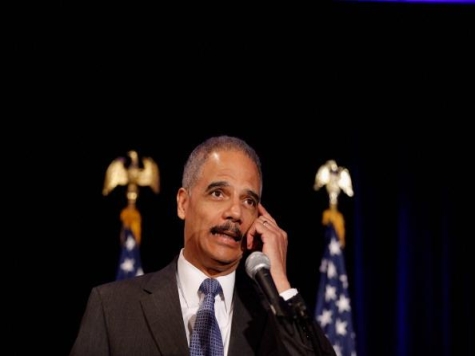
President Obama’s assertion of executive privilege to prevent Attorney General Eric Holder from complying with congressional subpoenas on the Operation Fast and Furious fiasco will blow up in the White House’s face. But not for the reasons you’ve heard on the first day of this legal fight.
Some Republicans are saying–and some media commentators are reporting–that executive privilege only applies when the president himself is involved. That’s incorrect as a matter of law.
It’s important to get this right, because some are suggesting that today’s invoking of the privilege means Obama himself is involved, a smoking gun that could make this the next Watergate. Not true. The White House might be involved, but we don’t know one way or another… yet.
As I’ve written before, there are two types of executive privilege. One is a strong form rooted in the Constitution, called the presidential communication privilege. But there is another type, much weaker and rooted in common law instead of the Constitution, called the deliberative process privilege. That second, weaker variety is what President Obama invoked today regarding Holder.
It’s still the White House asserting the privilege, because only the president can assert executive privilege for his entire administration. (Except that the vice president can also assert it, but only for matters directly involving the VP.) So Obama has invoked it on Holder’s behalf.
Others are also incorrect in saying executive privilege only applies to military matters, diplomatic secrets, or national security situations. The courts have repeatedly held that executive privilege covers much more than that, most recently in 2004 in Cheney v. U.S. District Court, where the Supreme Court considered whether the VP’s conversations with energy industry leaders was protected by the privilege. Executive privilege is strongest when those three issues are on the table, but it’s broader than that.
There are several factors courts look to. The most important is whether the president was involved, since that determines which privilege (presidential communications versus deliberative process) is in play. Beyond that, several factors weigh in favor of Congress and against Holder here. This was domestic policy (not foreign), in an operation out of an agency (not the White House), where crimes may have been committed, and none of the president’s constitutional prerogatives are implicated by the case. Factors favoring Obama are that this is not legislative policymaking, and it does have a diplomatic angle because of relations with Mexico. But surveying 200 years of court precedent shows that Congress has the better claim here.
The only way to beat an executive privilege claim is by court order. To take this issue to court, the full House must vote to hold Holder in contempt of Congress, then–when federal prosecutors predictably inform the House that they will not prosecute their boss–the full House must pass a second resolution authorizing Rep. Darrell Issa to file suit in the U.S. District Court for D.C. on behalf of the entire U.S. House.
Holder will lose the court fight. He’ll appeal, of course, but eventually the appeals will be over, and we’ll all learn the truth of what really happened in Fast and Furious.
And whom to hold accountable.
Breitbart News legal contributor Ken Klukowski is on faculty at Liberty University School of Law, and author of Making Executive Privilege Work, published by Cleveland State Law Review.

COMMENTS
Please let us know if you're having issues with commenting.